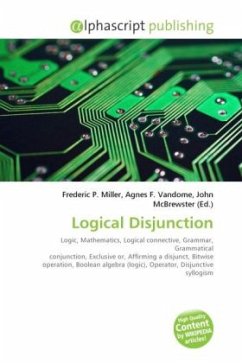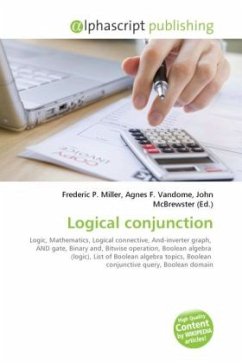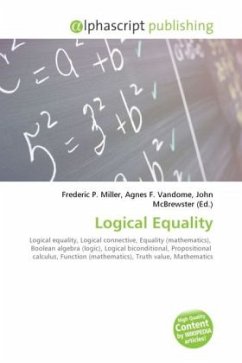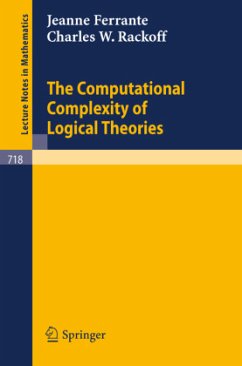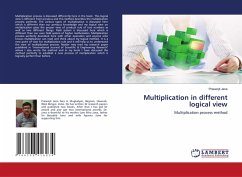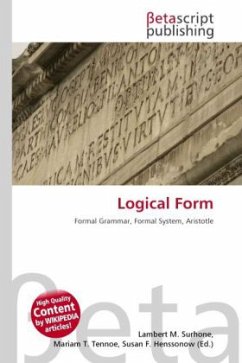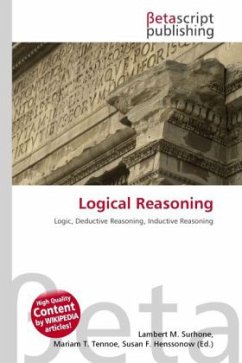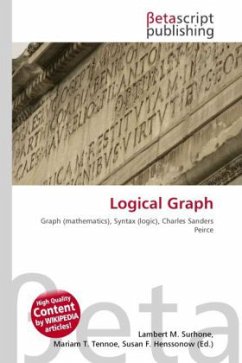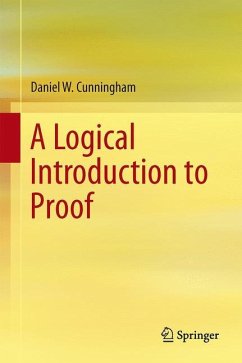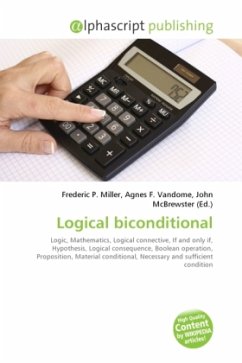
Logical biconditional
Versandkostenfrei!
Versandfertig in 6-10 Tagen
23,99 €
inkl. MwSt.

PAYBACK Punkte
12 °P sammeln!
In logic and mathematics, the logical biconditional (sometimes known as the material biconditional) is a logical operator connecting two statements to assert "p if and only if q", where p is a hypothesis (or antecedent) and q is a conclusion (or consequent). The operator is denoted using a doubleheaded arrow ( ), an equality sign (=), an equivalence sign ( ), or EQV. It is logically equivalent to (p q) (q p), or the XNOR (exclusive nor) boolean operator. It is equivalent to "(not p or q) and (not q or p)". It is also logically equivalent to not p and not q or p and q.The hypothesis is sometime...
In logic and mathematics, the logical biconditional (sometimes known as the material biconditional) is a logical operator connecting two statements to assert "p if and only if q", where p is a hypothesis (or antecedent) and q is a conclusion (or consequent). The operator is denoted using a doubleheaded arrow ( ), an equality sign (=), an equivalence sign ( ), or EQV. It is logically equivalent to (p q) (q p), or the XNOR (exclusive nor) boolean operator. It is equivalent to "(not p or q) and (not q or p)". It is also logically equivalent to not p and not q or p and q.The hypothesis is sometimes also called "sufficient condition" while the conclusion may be called "necessary condition. The only difference from material conditional is the case when the hypothesis is false but the conclusion is true. In that case, in the conditional, the result is true, yet in the biconditional the result is false.



